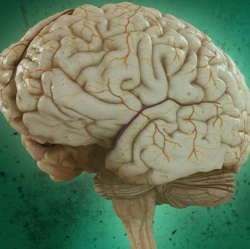
New research shows that a BACE inhibitor drug reduces the amount of amyloid beta in the brains of mice. Amyloid beta is a protein believed to be a major cause of Alzheimer’s and research has focused on finding ways to remove or reduce the accumulation of amyloid beta in the brain.
No drug on the market today can effectively treat Alzheimer’s disease and with 50 million already suffering from Alzheimer’s globally and tens of millions more projected to be diagnosed with the disease as the global population ages in the coming decades, it’s becoming a serious concern for governments and policy makers.
This new study led by Dr. Aylin Keskin, tested a substance that inhibits beta secretase in a mouse model of Alzheimer’s disease. The mice used in the study accumulate large amounts of amyloid beta, which then become amyloid beta plaques in the brain and lead to cognitive decline.
The mice were feed the beta secretase inhibitor for up to eight weeks, after which the scientists examined the brains of the mice using an imaging technique known as two-photon microscopy to see the details of individual nerve cells.
The brains of the mice in the study showed amyloid beta and brain functions actually normalized. The brains showed less hyperactive nerve cells, and the slow-wave brain patterns looked like patterns found in healthy mice.
A major discovery from the study was that the memory of the mice significantly improved and they were able to remember and location of a hidden platform in a water-filled maze as fast as healthy mice.
“What really impressed and amazed us was the reversibility of the symptoms. Before the treatment, the mice had a marked clinical picture with amyloid beta plaques in their brain. Nevertheless, the substance was able to restore important brain functions and abilities,” said Dr. Keskin.
Clinical trials in humans
The results from the study will soon be trialed in human Alzheimer’s patients with a large-scale clinical trial currently being planned with around 1000 participants that will test a modified form of the BACE inhibitor drug.
Co-author of the study, Dr. Marc Aurel Busche said “Needless to say, we very much hope that the promising discoveries in the animal model will translate to humans.”
